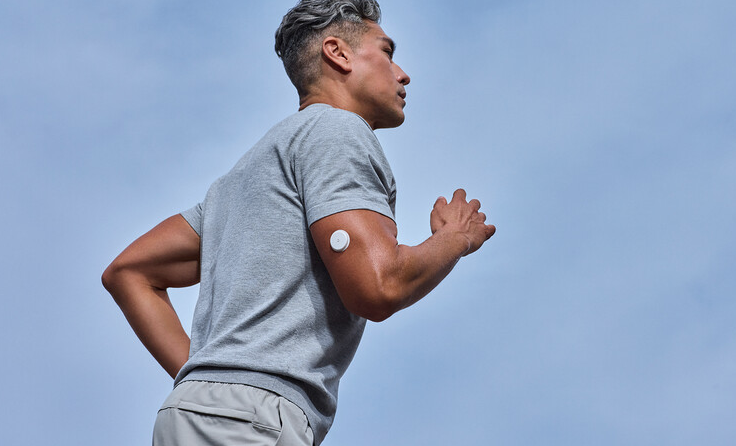Health technology company Abbott has been developing a number of biometric wearable devices for consumers, and now you can get one of them: the company has just released the Lingo continuous glucose monitor.
It’s an over-the-counter device, meaning you can order it without prior approval, but it’s not intended for diabetics, as it’s not designed for insulin pumps or serious medical alerts, but rather for the curious who want to monitor their blood sugar levels.
Here’s how it works: The biosensor is attached to the back of your arm and can remain there for up to 14 consecutive days. During that time, the device continuously transmits glucose data to a companion smartphone app, which in theory interprets “your body’s response to food, exercise, and the stresses of everyday life.”
Abbott
The app is particularly robust, giving you access to all sorts of health-related metrics, including a blood glucose graph that updates in real time and a feature called Lingo Count that shows data related to blood sugar spikes.
There’s also a place to log your food and activity, and the app syncs with Apple Health to automatically track your workouts. Once the system has enough information, it will give you customized recommendations and create challenges to encourage healthy habits.
Lingo biosensors cost $49 each, but they only work for two weeks and are not reusable. The company offers combo packs of two sensors for $89 and six for $249.
Abbott’s Lingo device is not the first continuous glucose monitor on the market: A company called Dexcom received FDA clearance for a similar sensor earlier this year. Its Stelo Glucose Biosensor also costs $89 for a pair and works for two weeks each.
It’s worth noting that there is very little evidence to suggest that these types of blood glucose monitors are actually useful, and even less evidence to suggest that there is any meaningful way to “optimize” your blood glucose levels.


